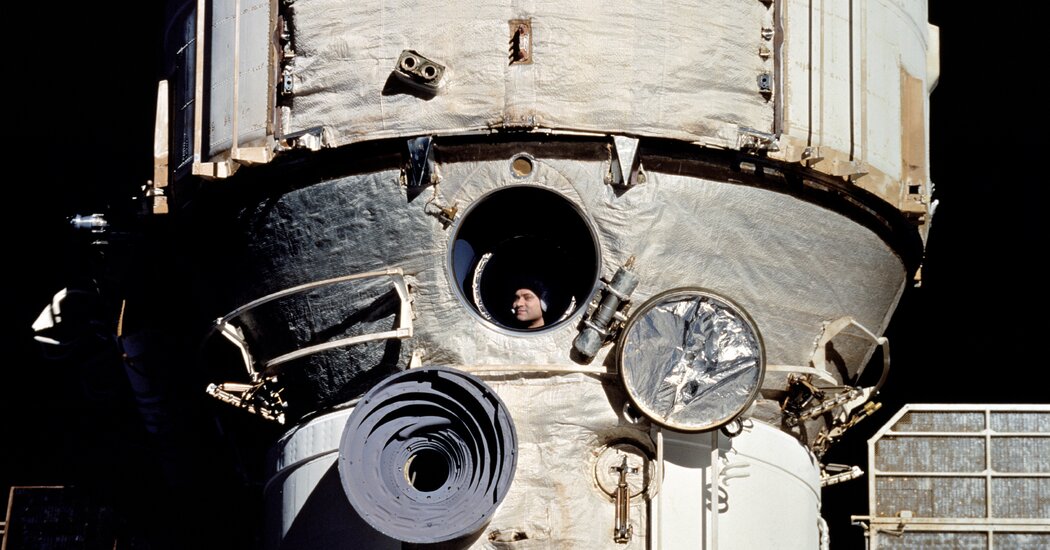
Valery Polyakov, Who Took the Longest Journey in Space, Dies at 80
Dr. Valery Polyakov, a physician and astronaut who held the world record for consecutive days spent in outer space, 437, has died. He was 80.
Russia’s space agency announced the death without specifying when or where it occurred or the cause.
Dr. Polyakov took off for the Russian Mir space station on Jan. 8, 1994, and returned to Earth 437 days, 17 hours and 38 minutes later, on March 22, 1995. He had orbited Earth 7,075 times and traveled nearly 187 million miles, according to the New Mexico Museum of Space History.
A specialist in space medicine, he had volunteered for the mission to prove that the human body could survive microgravity long enough to reach Mars, Wired magazine reported in 2010. He worked out while in space and returned looking “big and strong” — “like he could wrestle a bear” — Wired quoted the American astronaut Norman Thagard as saying.
Rather than be carried out of his capsule on his return, Dr. Polyakov walked on his own strength, sat down, stole a cigarette from a friend and began sipping brandy, according to “The Story of Manned Space Stations: An Introduction,” by Philip Baker.
Dr. Polyakov’s record remains unbeaten. In March, Mark Vande Hei returned to Earth after spending 355 days in space aboard the International Space Station, the Mir’s successor, a record for an American.
Valery Ivanovich Korshunov was born on April 27, 1942, in the Russian city of Tula, according to the Museum of Space History. He changed his name after being adopted by his stepfather.
No information on his survivors was available.
He was inspired to specialize in space medicine by Boris Yegorov, the first physician to fly in space. Dr. Polyakov developed his expertise in the field at the Institute of Medical and Biological Problems in Moscow.
In a history of the Mir space station, NASA said Dr. Polyakov had “contributed greatly to the biomedical studies of long-term human spaceflight.”
